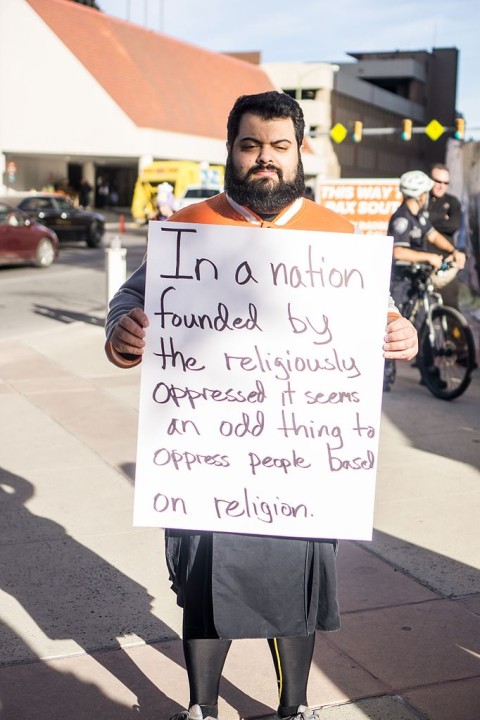Legal think tank looks at religious liberty advocacy on the left

Christian conservatives have unfairly co-opted religious liberty as their political issue, says a new report from the Law, Rights, and Religion Project at Columbia Law School.
“Far from abandoning this fundamental right, people of faith outside the conservative movement have taken up the fight for religious freedom in a wide variety of contexts,” the authors wrote in Whose Faith Matters? The Fight for Religious Liberty Beyond the Christian Right.
“And while the Christian right has positioned itself as the sole defender of ‘religious liberty,’ this movement’s strategy is to substitute the beliefs of a narrow band of conservative Christians for the nation’s broad and pluralistic religious traditions,” they continued.
In an effort to debunk the common misconception that religious liberty is solely a conservative issue, the report outlines the ways progressive people of faith have approached religious liberty: for example, churches around the country have successfully used the Religious Freedom Restoration Act to defend their food distribution ministries, and Muslims have used RFRA to challenge government surveillance and profiling.
The authors have also included an online map showing where progressive religious liberty advocacy is happening across the United States.
Ultimately, the authors said, religious liberty means different things to different people—and the courts could not possibly protect every private understanding of it. Like free speech, they said, the free exercise of religion is a fundamental right but not an unlimited one. Sometimes it must “yield to larger governmental or public concerns—including rights of others to follow their own consciences.”
Yet the authors believe there are six key characteristics of religious law that would help ensure that everyone is adequately protected: in addition to being limited, it must be neutral, noncoercive, nondiscriminatory, democratic, and pluralistic.
The mission of the Law, Rights, and Religion Project is to ensure that the constitutional right to freedom of religion protects all religious beliefs and communities, including those who do not adhere to any religion. The project’s previous reports looked at the way religious liberty bills harm pregnant people of color, the way LGBT senior citizens are harmed by religious exemptions, the limits for women of color in the Catholic health care system, and the consequences of the Trump administration’s “overly broad” guidance on religious liberty.





